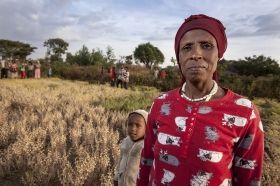
A University of Saskatchewan delegation led by researcher Carol Henry has just returned from meetings in Ethiopia that celebrated the outcomes of a 20-year partnership between U of S and Hawassa University. Mary Buhr, dean of Agriculture and Bioresources, and Maurice Moloney, executive director and CEO of the U of S Global Institute for Food Security, were part of the delegation.
>> Read the Full Article

 ENN
Environmental News Network -- Know Your Environment
ENN
Environmental News Network -- Know Your Environment